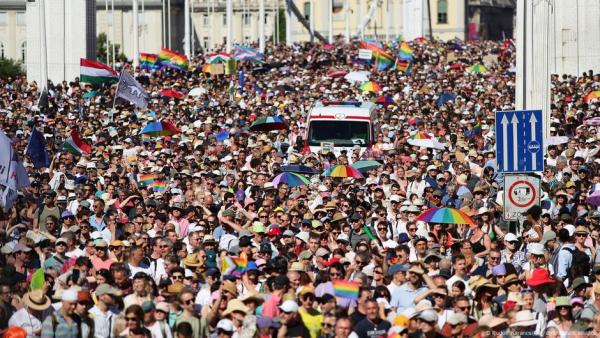

Hungarian police said that they will not prosecute marchers in the Budapest Pride parade, despite the event being banned. This year's Pride attracted a record crowd, with organizers reporting over 200,000 participants.Police in Budapest announced Monday that they will not initiate any legal proceedings against participants of the Pride parade that occurred in the Hungarian capital at the end of June, despite the ceremony being prohibited. The decision from the police came amid fears that those who took part could face fines and with organizers facing up to a year in prison. Budapest mayor under threat of prison time Pride parades are held across the globe in support of LGBTQ+ rights. Budapest police said in a statement that this year's organizers created public uncertainty about the event's legal status. Among them was Budapest's liberal mayor, Gergely Karacsony, who declared Pride an official municipal event and argued this renders the government's ban irrelevant. According to the law in Hungary, municipal and state occasions are exempt from public assembly decisions. In a statement on Monday, Budapest police said that they would not initiate any legal proceedings as participants came to believe that the march was legal due to comments by organizers and due to the participation of the municipal government. Karacsony has been under police investigation for four days, with organizers of prohibited gatherings under threat of up to one year in prison. Right-wing populist Prime Minister Viktor Orbandescribed the event as "repulsive and shameful" and accused the EU of orchestrating the march. What are Orban's anti-LGBTQ+ policies? Orban's government had amended legislation and the constitution as part of a broader anti-LGBTQ+ agenda. In March, lawmakers from his Fidesz party passed a law in March allowing the ban of Pride marches, claiming it was motivated by the need to protect children. Taking part in banned events is considered an administrative offence in Hungary, punishable by financial penalties of up to €500 ($586). Authorities used facial recognition software to identify Pride participants in advance. Despite these measures, Budapest Pride 2025 attracted a record crowd, with organizers reporting over 200,000 participants, far higher than the previous record turnout of 35,000. Orban is facing a growing challenge from center-right opposition leader Peter Magyar's Tisza party, with elections due for next year. Edited by: Saim Dušan Inayatullah